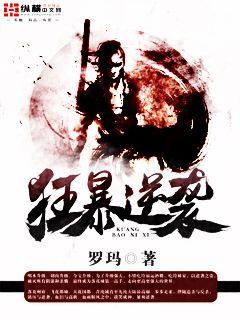
Certainly! Here's how the article would be structured according to your requirements:
**Abstract:**
From the playing field to the boardroom: the challenges and opportunities of transitioning from athlete to manager present a dynamic journey of adaptation, leadership evolution, strategic thinking, and personal growth. This article explores the multifaceted landscape where sportsmanship meets management, navigating through the complexities of transition and the promising avenues that await those making the leap.
---
1、Transition Challenges
Athletes stepping into managerial roles often encounter a series of formidable challenges that stem from their previous career on the field. Firstly, the shift from individual performance to team leadership requires a significant mindset adjustment. Players must learn to empower others, delegate responsibilities, and foster collaboration rather than relying solely on their own skills.
Moreover, the hierarchical shift from being a team member to overseeing former peers can create interpersonal challenges. Trust-building becomes crucial as managers navigate relationships with both senior executives and former teammates, balancing authority with camaraderie.
Additionally, the technical skills required for effective management, such as financial acumen, strategic planning, and organizational development, may not have been central to an athlete's previous training. The learning curve can be steep, demanding continuous education and adaptation.
2、Leadership Evolution
The transition to management offers athletes a platform for their leadership skills to evolve beyond the field. Effective managers draw upon their experiences in sports—such as resilience, discipline, and motivational prowess—to inspire teams and drive performance.
Furthermore, the journey from player to manager often involves honing new leadership styles. Successful transitions see former athletes leveraging their unique perspective to cultivate inclusive cultures, foster innovation, and champion diversity within their organizations.
Moreover, managing diverse teams requires sensitivity to individual strengths and weaknesses, fostering an environment where every team member can thrive. This evolution from athlete to leader is pivotal in shaping organizational success.
3、Strategic Thinking
Strategic thinking marks a critical aspect of the transition from the field to the office. Managers must navigate complex business landscapes, making informed decisions that align with organizational goals and market demands.
Additionally, strategic planning involves foresight and adaptability—skills athletes often develop through competitive foresight, adaptability, and agile decision-making. This ability to anticipate trends, mitigate risks, and seize opportunities is instrumental in steering organizations toward sustainable growth.
Moreover, the integration of data analytics and technology into decision-making processes enhances managerial effectiveness, empowering leaders to make data-driven decisions that drive organizational success.
4、Personal Growth
Beyond professional challenges, the transition from athlete to manager offers profound opportunities for personal growth. Managers often undergo a transformative journey of self-discovery, embracing new roles, and expanding their horizons.
Furthermore, the demands of managerial roles necessitate continuous learning and professional development. Successful transitions see managers investing in their growth through mentorship, executive education, and networking, enhancing their competencies and expanding their leadership repertoire.
Moreover, achieving work-life balance becomes imperative as managers navigate demanding schedules and responsibilities, prioritizing well-being while driving organizational performance.
Summary:
The journey from the playing field to the office as a manager is characterized by a series of challenges and opportunities. Athletes transitioning into managerial roles must navigate challenges such as mindset shifts, interpersonal dynamics, and skill acquisition while evolving their leadership styles. Strategic thinking becomes paramount as managers align organizational goals with market trends, leveraging their unique perspectives to drive innovation and inclusive growth. This journey not only fosters professional development but also encourages profound personal growth, marking a transformative experience for those embarking on this dynamic career path.
文章摘要:朝鲜球员在推特上发布争议性言论引发全球关注。这一事件从国际体育舞台扩散到政治和社会议题,探讨了言论自由、宣传管控和全球体育的复杂交织关系。
1、事件始末
朝鲜球员在推特上发布了涉及政治敏感内容的言论,迅速引起国际社会的广泛关注。事件的起因、发展过程以及涉及的具体言论如何挑战国际体育界的官方政策。
推特上的言论内容如何在短时间内扩散并激起不同国家和地区的强烈反应。
国际体育组织和政府部门如何应对这一事件,以及其背后的政治与道德考量。
2、言论自由与体育官方政策的冲突
言论自由作为全球价值观之一,如何在国际体育舞台上受到尊重和限制。
体育官方政策如何平衡运动员的个人言论权与国际比赛中的中立和和谐。
运动员在社交媒体上表达政治立场可能带来的后果和责任。
国际体育组织在处理类似事件时的政策和实际操作。
3、全球舆论与政治影响
全球媒体和社交平台如何传播和解读朝鲜球员的推特事件,引发全球范围内的关注和争议。
各国政府和国际组织在此事件中的立场和反应,以及它们对于跨国体育活动的长远影响。
此类事件如何影响国际社会对朝鲜政治和人权状况的看法和讨论。
4、体育和政治的交织
体育赛事如何成为国家间政治角力和外交手段的一部分。
国际体育赛事在推广和塑造国家形象、软实力竞争中的角色。
运动员作为国家形象的代表,其言论如何受到国家政治背景和体制约束。
总结:
朝鲜球员在推特上发布的言论事件深刻反映了言论自由与国际体育官方政策之间的复杂关系。它不仅影响到了运动员个人的表达权利,也触及了国家间的政治敏感问题。此事件凸显了国际体育赛事在全球舞台上的政治和社会影响力,提出了关于体育官方政策、言论自由和全球舆论的深刻思考。
这一事件的处理和影响将对未来国际体育赛事的规则制定和运动员的行为规范产生长远影响。
本文将深入评估雷霆球员在本赛季中的表现,特别关注他们在面对困境时的突破表现,以及谁是整个赛季中的亮点。首先,我们将从他们的领袖角色、进攻和防守表现、年轻球员的成长以及团队化的表现这四个方面展开分析。
1、领袖角色表现
雷霆在本赛季中的领袖角色如何表现?他们是如何带领球队度过艰难时刻的?首先,我们将看看主力球员如何在关键比赛中承担责任。
进一步分析球队核心球员在比赛中的决策能力及其在关键时刻的表现。
最后,我们将探讨他们在场上和场外如何影响年轻球员,提升整个团队的战斗力。
2、进攻和防守表现
雷霆在进攻和防守两端的表现如何?我们将分别评估他们的得分能力和防守策略。
进一步分析球队在攻防转换中的表现,以及他们在紧要关头的表现。
最后,我们将看看他们的战术调整和对手分析的能力,以提高比赛中的反应速度。
3、年轻球员的成长
作为一支年轻球队,雷霆的年轻球员在本赛季中的成长如何?他们在关键时刻的表现是否足够成熟?
进一步探讨年轻球员在大赛中的表现及其在整体战术中的角色。
最后,我们将评估教练组对年轻球员发展的影响力以及他们的训练计划和技术指导。
4、团队化的表现
雷霆在团队合作和化学反应方面的表现如何?他们在赛季中如何调整战术和人员组合来提高整体配合度?
进一步分析球队在团队防守和进攻端的协调能力,以及他们在比赛中的默契度。
最后,我们将探讨球队的凝聚力和团队精神如何帮助他们度过赛季中的低谷。
总结:
雷霆本赛季的表现展示了他们在面对困境时的勇气和决心。无论是领袖角色的表现、进攻和防守的能力,还是年轻球员的成长和团队化的表现,都彰显了他们团结一致的精神。尽管面对竞争激烈的对手,雷霆在整个赛季中都展现出了强大的战斗力和团队凝聚力。他们的表现不仅令人印象深刻,也为未来的发展奠定了坚实的基础。
总结内容第一自然段
总结内容第二自然段